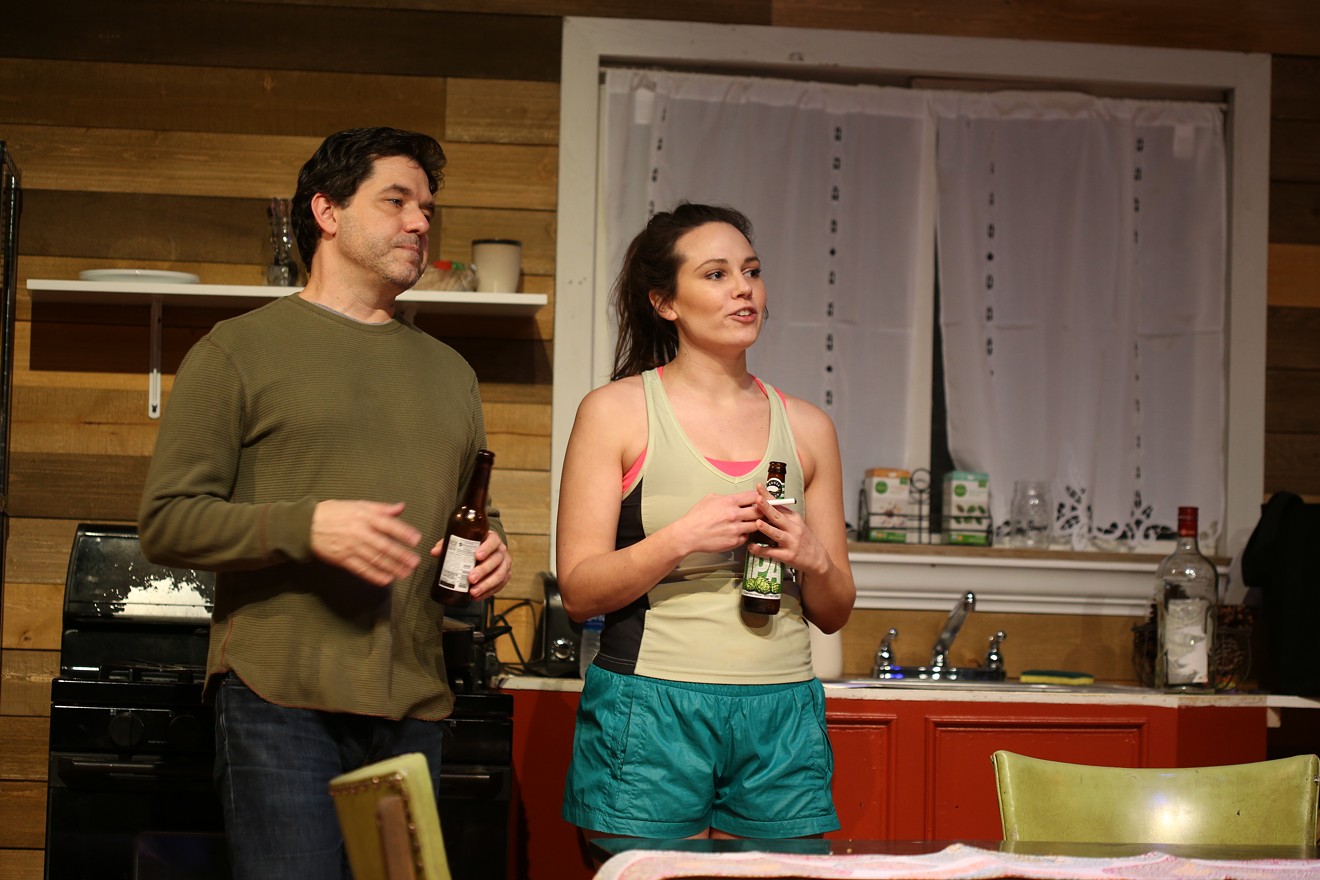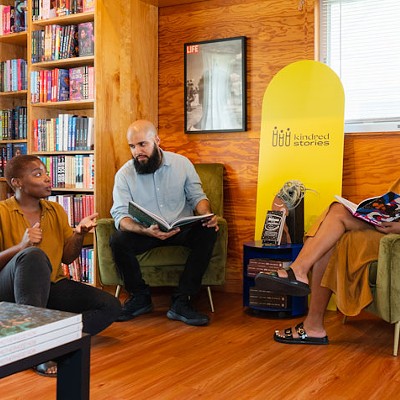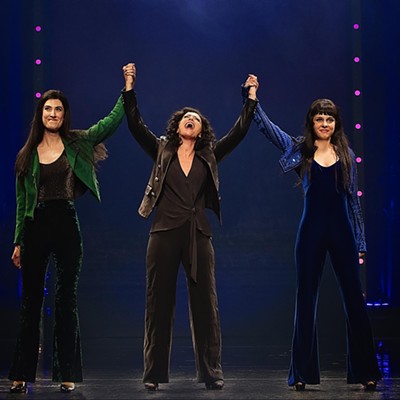Support Us
Houston's independent source of
local news and culture
account
- Welcome,
Insider - Login
- My Account
- My Newsletters
- Contribute
- Contact Us
- Sign out
Touch(ed) Takes An Incredulous Look At Mental Health Issues
Jessica Goldman February 17, 2018 10:37AM

John Gremillion and Rachael Logue in Touch(ed)
Photo by Claire Logue
[
{
"name": "Related Stories / Support Us Combo",
"component": "11591218",
"insertPoint": "4",
"requiredCountToDisplay": "4"
},{
"name": "Air - Billboard - Inline Content",
"component": "11591214",
"insertPoint": "2/3",
"requiredCountToDisplay": "7"
},{
"name": "R1 - Beta - Mobile Only",
"component": "12287027",
"insertPoint": "8",
"requiredCountToDisplay": "8"
},{
"name": "Air - MediumRectangle - Inline Content - Mobile Display Size 2",
"component": "11591215",
"insertPoint": "12",
"requiredCountToDisplay": "12"
},{
"name": "Air - MediumRectangle - Inline Content - Mobile Display Size 2",
"component": "11591215",
"insertPoint": "4th",
"startingPoint": "16",
"requiredCountToDisplay": "12"
}
,{
"name": "RevContent - In Article",
"component": "12527128",
"insertPoint": "3/5",
"requiredCountToDisplay": "5"
}
]
To enjoy a play, we the audience willingly engage in several suspensions of disbelief. Those people up there on stage? They really are the characters they portray. The lighting that dims, darkens or shines brightly? Well that’s just the atmosphere. Same for the music that fades in and out or the chirping in the background when we can see neither band nor birds. We believe it all, and it’s this unwritten contract of acceptance that elevates the magic of live theater from mere make-believe to, fingers crossed, a wholly felt experience.
So then what to do when we as the audience are fully prepared to take that leap of faith, but the production on offer doesn’t live up to its side of the bargain? How to react when even though we want to believe, the writing, direction and acting makes it impossible for us to accept almost everything we see on stage?
This is the conundrum we face in Rogue Productions presentation of Bess Wohl’s frustratingly cliché and implausible play, Touch(ed), examining mental illness and whether traditional medical methodologies are the best answer for treatment.
The probability problems emerge the moment the play begins. Kay (Lisa Villegas) has rented a cottage (rustically perfected set design by Shelby Marie Blocker) with her new boyfriend Billy (John Gremillion) for the purpose of inviting her sister Emma (Rachael Logue) to take a “break” from the psychiatric facility she’s been a resident of for almost ten years. A week away for Emma will do her good, Kay believes, despite the fact that they need to rid the property of everything sharp so Emma (who has hallucinations, hears disturbing voices and has had multiple suicide attempts) doesn’t do anything rash on her “vacation” from treatment.
Emma arrives with a bag full of pills, a sedated personality and seemingly no concern from either her doctors or sister that this might be a bad idea. Even Billy is all for the experience. After all, he’s kind of depressed too, being an egotistical mansplaining poet suffering from a severe case of writer's block. Will he ever top his great success? A success he is quick to point out for all who will listen. Billy is a grade A asshole in every passive aggressive way imaginable. Not that you’d get that from the almost loving way he’s presented in the show from start to finish. Or from how both Wohl and director Chelsea Ryan McCurdy allow him to get off fairly scot free despite his selfish and downright caddish behavior.
For her part, Kay fusses over her sister, behaving manically in response to Emma’s monosyllabic, deadpan manner. It makes for some easy laughs, this juxtaposition, but where is the sisterly bond? The real concern? The history? It’s hard to tell whether the problem is Wohl’s writing, McCurdy’s direction or Logue/Villegas’ performance, but these two siblings have about as much familial chemistry as a turtle and a lawn mower.
Falling even lower on the chemistry scale however are Kay and boyfriend Billy. She’s an elementary school teacher without much of a life, he’s a writer she fawned over when he came to read to her class from his poems about blow jobs (Honestly I’m not making this up). He’s artsy and pretentious in that rough ‘screw the system’ fashion and she apparently has devoted her life to caring for her sister (present situation aside we suppose). While some playwrights can make opposites attract, here Wohl, with no relief from either McCurdy or the actors, make us cringe with awkward ickiness whenever the pair kiss. What they see in each other is a mystery that frankly we wish we didn’t need to consider.
And yet we hold out hope that things will get better. That Wohl, who gave us the intriguingly silent play, Small Mouth Sounds (on stage in Houston three years ago to much acclaim) actually has bigger, more substantial plans for this show. Plans to address issues of mental illness with some clever mixture of comedy giving way to gravitas.
What she does instead is take our disbelief and ratchet it up to 11.
The hook that show that sets the entire intelligence-insulting second act in motion begins when Billy persuades Kay to go back to work, leaving Emma in his care at the cabin for weeks on end. Billy, who just met Emma and knows little to nothing about her condition, history or prognosis. So much for the devoted sister. Kay agrees to abandon her sister to his care then proceeds not to even show up to check in on how things are going.
In her absence, Billy fetishizes Emma to the point of armchair diagnoses. She isn’t really sick, he posits. She’s just artistic like him. A poet that has lost her way. Those medical professionals don’t know what the hell they are doing. They’re all in the pockets of Big Pharma. All Emma needs is to go off her meds and all will be fine. Hell, she may even be the inspiration for his new book.
What a surprise then for Kay when she finally shows up to find her sister a much changed woman. A change that we know will not remain positive for long. But a change we’re asked to be intrigued and even amused by nonetheless.
Had Wohl thrown in some magical realism or surreal elements, then perhaps we could get on board with such asinine behaviors presented as plausible and even responsible. But alas, Touch(ed) is full tilt naturalism, leaving us wondering who in fact is supposed to be the mentally unwell one in the play.
If Wohl’s scenario is bad, her writing is often worse, putting platitudes into the mouths of her characters time and time again. “I’m on the edge of a knife watching the hours ticking by,” exclaims Kay in frustration for her years spent worrying about Emma. It’s not lost on us that this hackneyed bitching about not having a normal life comes after Kay has neglected her sister and her boyfriend for weeks on end. We bristle at the incongruence.
We also scratch our heads at the music selection for the show (Emily Curley’s sound design) which features snippets of Simon & Garfunkel, The Monkees and Peter Paul and Mary. What on earth does '60s folk/pop music have to do with this modern situation? Or with mental health? Sure the cabin is rustic with an old record player, but if that’s the tie in, it’s flimsy at best.
Yet even with the almost total ridiculousness of this production, comes just the faintest of glimmers of hope. In perhaps the play’s only meaningful insight, Kay confesses to Billy that in spite of her utter devotion to Emma, she’s secretly wished her sister were dead. It’s a profound moment that gives voice to the guilt-ridden but oh so normal thought process of those that care for the mentally unwell. The feeling of overwhelm and the wish that it would all stop.
But any true impact this point might have made is so buried in the sludge of silliness that comprises this examination that it’s rendered fairly mute.
This is only Rogue Productions' second production. Their first, the highly entertaining Ben and Matt, got critical acclaim from me in these pages but was dinged for not truly fitting into the company’s mandate. That of trying “to create accessible theatrical experiences that represent the diverse population of our city.” Touch(ed) attempts to address mental health issues, which is a needed and valiant swing in the theatrical landscape of Houston. Let’s hope third time's a charm for Rogue. Next outing let’s see if the company can both check that representation box while choosing a show that intrigues as well.
Touch(ed) continues through March 3 at Studio 101, 1824 Spring Street. For information, visit rogueproductionshtx.com. $20-$42.
KEEP THE HOUSTON PRESS FREE...
Since we started the Houston Press, it has been defined as the free, independent voice of Houston, and we'd like to keep it that way. With local media under siege, it's more important than ever for us to rally support behind funding our local journalism. You can help by participating in our "I Support" program, allowing us to keep offering readers access to our incisive coverage of local news, food and culture with no paywalls.
Jessica Goldman was the theater critic for CBC Radio in Calgary prior to joining the Houston Press team. Her work has also appeared in American Theatre Magazine, Globe and Mail and Alberta Views. Jessica is a member of the American Theatre Critics Association.
Contact:
Jessica Goldman
Trending Arts & Culture
- HGO's Don Giovanni Offers Sex, Deceit and a Final Reckoning All Wrapped Up in Mozart's Music
- The 10 Best And Most Controversial Hustler Magazine Covers Ever (NSFW)
- Top 5 Sickest Stephen King Sex Scenes (NSFW)
-
Sponsored Content From: [%sponsoredBy%]
[%title%]

Don't Miss Out
SIGN UP for the latest
arts & culture
news, free stuff and more!
Become a member to support the independent voice of Houston
and help keep the future of the Houston Press FREE
Use of this website constitutes acceptance of our
terms of use,
our cookies policy, and our
privacy policy
The Houston Press may earn a portion of sales from products & services purchased through links on our site from our
affiliate partners.
©2024
Houston Press, LP. All rights reserved.





